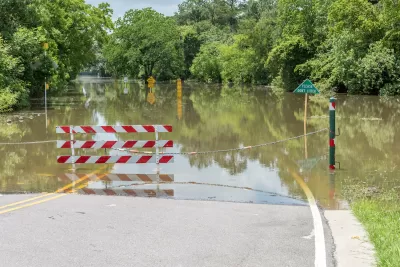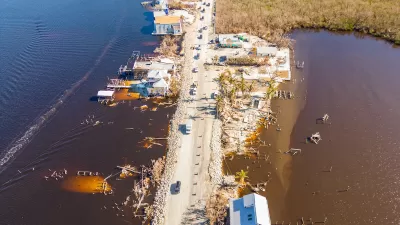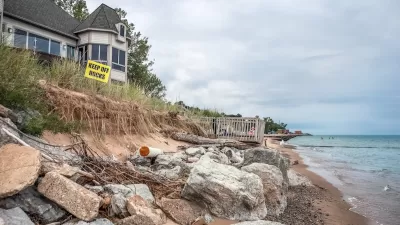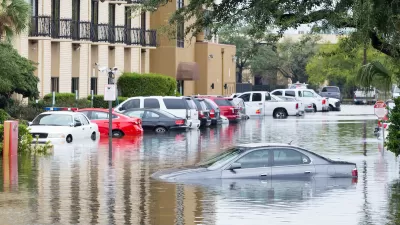As more Americans are displaced by wildfires, flooding, erosion, and other climate risks, safer regions should prepare for a wave of migration.

Parts of the country that are protected from many of the worst climate disasters and extreme weather could see a major influx of population in the next few years, writes Abrahm Lustgarten in The Atlantic, citing an interview with Beth Gibbons of the American Society of Adaptation Professionals (ASAP).
Tens of millions of Americans may move in response to these changes, fleeing coasts and the countryside for larger cities and more temperate climates. In turn, the extent to which our planet’s crisis can present an economic opportunity, or even reimagining, will largely depend on where people wind up, and the ways in which they are welcomed or scorned.
Gibbons says states like Michigan, where towns have underutilized infrastructure and relatively cheap housing, should encourage Californians and others displaced by wildfire risk to move there. “The Great Lakes region should market itself as a climate refuge, she thinks, and then build an economy that makes use of its attributes: the value of its water, its land, its relative survivability.”
However, climate migration can also lead to gentrification and tensions between old and new residents; “not so far down the line, forced migration could instead yield fears of newcomers as economic burdens.”
FULL STORY: America’s Climate Boomtowns Are Waiting

Alabama: Trump Terminates Settlements for Black Communities Harmed By Raw Sewage
Trump deemed the landmark civil rights agreement “illegal DEI and environmental justice policy.”

Study: Maui’s Plan to Convert Vacation Rentals to Long-Term Housing Could Cause Nearly $1 Billion Economic Loss
The plan would reduce visitor accommodation by 25% resulting in 1,900 jobs lost.

Planetizen Federal Action Tracker
A weekly monitor of how Trump’s orders and actions are impacting planners and planning in America.

Waymo Gets Permission to Map SF’s Market Street
If allowed to operate on the traffic-restricted street, Waymo’s autonomous taxis would have a leg up over ride-hailing competitors — and counter the city’s efforts to grow bike and pedestrian on the thoroughfare.

Parklet Symposium Highlights the Success of Shared Spaces
Parklets got a boost during the Covid-19 pandemic, when the concept was translated to outdoor dining programs that offered restaurants a lifeline during the shutdown.

Federal Homelessness Agency Places Entire Staff on Leave
The U.S. Interagency Council on Homelessness is the only federal agency dedicated to preventing and ending homelessness.
Urban Design for Planners 1: Software Tools
This six-course series explores essential urban design concepts using open source software and equips planners with the tools they need to participate fully in the urban design process.
Planning for Universal Design
Learn the tools for implementing Universal Design in planning regulations.
Caltrans
Smith Gee Studio
Institute for Housing and Urban Development Studies (IHS)
City of Grandview
Harvard GSD Executive Education
Toledo-Lucas County Plan Commissions
Salt Lake City
NYU Wagner Graduate School of Public Service





























